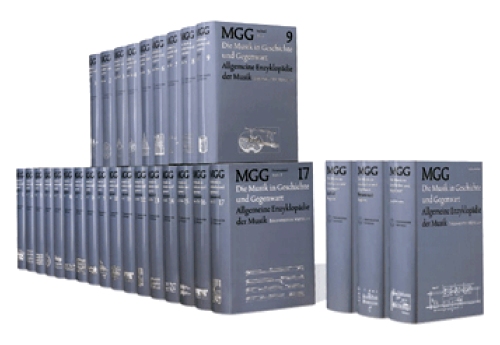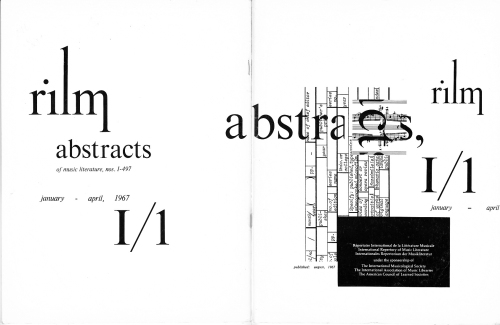
In May 2017 James Adrian Music Company (JAMC), owner of Index to Printed Music: Collections and Series (IPM), signed an agreement transferring ownership of IPM to Répertoire International de Littérature Musicale (RILM), effective 30 June 2018. IPM combines index, bibliography, series, and names databases into a highly comprehensive resource for searching and identifying individual pieces of music printed in standard scholarly music editions. Currently the database includes 22,975 entries for individual volumes, an authority file with 25,889 personal names, 1133 entries for series and sets, and an index to 538,354 individual pieces of music. It provides superior access to this content for scholars, performers, teachers, and other researchers, including powerful searching capabilities for finding information on specific performing forces and repertoire. Many of the sets and series indexed in IPM are adding volumes continuously, and new editions appear on the market. Therefore, IPM grows every year to be as comprehensive and up-to-date as possible. IPM is curated by a team of experts and is available on EBSCOhost and via the EBSCO Discovery Service. IPM is a natural addition to RILM’s suite of music resources. Since 2016 RILM has been expanding its resources for music researchers beyond its flagship publication, RILM Abstracts of Music Literature, adding RILM Abstracts with Full Text; RILM Music Encyclopedias; and, in partnership with Bärenreiter and J. B. Metzler, MGG Online. With the addition of IPM, RILM is entering the world of printed music. RILM’s authority lists—including names, work titles, publishers, and terms—as well as RILM’s proven database capabilities and subject expertise will contribute to the further development and enhancement of IPM. The founder of the Index to Printed Music, Dr. George R. Hill, states: “We are pleased that with RILM’s acquisition of IPM, its continuation, properly supported by an established leader in providing databases related to music, is assured. Over the years, IPM has largely depended on a dedicated group of musicologists and librarians devoted to its survival and growth. They include Joseph M. Boonin, Garrett Bowles, Lenore Coral, Mary Wallace Davidson, Elizabeth A. Davis, Vincent Duckles, Paul Emmons, Robert A. Falck, Virginia S. Gifford, Irving Godt, Ruth B. Hilton, Barton Hudson, Richard E. Jones, Sterling Murray, Barbara A. Renton, John H. Roberts, Gordon S. Rowley, Norris L. Stephens, Susan T. Sommer, and Eric Western.” Dr. Barbara Dobbs Mackenzie, the Director of RILM, adds, “IPM is an indispensable resource for anyone looking for scholarly, reliable editions of individual musical works. RILM is delighted to be able to take ownership of this resource, and to bring our experience to bear to ensure IPM’s reputation for accuracy and comprehensiveness, and to bring new digital capabilities to enhance the database and its search and discovery potential.” James Adrian Music Company, Bergenfield, NJ, a non-profit entity, supports and guides the creation, development, and distribution of the several databases collectively known as IPM. Components of IPM include digital files for name authorities, series, bibliography of editions indexed, and, most centrally, the index to music contained in the various editions. By adhering to established standards for bibliographic scholarship, JAMC is committed to providing a reliable and useful tool for musicians and researchers throughout the world. A hallmark of IPM has been the accuracy of index data, gathered directly by an examination of the printed music itself, not from secondary sources. Répertoire International de Littérature Musicale (RILM), New York, facilitates and disseminates music research worldwide. It is committed to the comprehensive and accurate representation of music scholarship in all countries and languages, and across all disciplinary and cultural boundaries. RILM’s flagship publication, RILM Abstracts of Music Literature, is a comprehensive international bibliography of writings on music covering publications from the early 19th century to the present. RILM Abstracts of Music Literature with Full Text includes the bibliography as well as full text articles from over 200 journals linked from the bibliographic records. RILM Music Encyclopedias is a full-text repository of over 40 seminal music encyclopedias. In partnership with the publisher Bärenreiter and J.B. Metzler, RILM publishes MGG Online, which comprises the 2nd edition of Die Musik in Geschichte und Gegenwart along with new and substantially updated content. RILM is a joint project of the International Association of Music Libraries, Archives, and Documentation Centres (IAML); International Council for Traditional Music (ICTM); and the International Musicological Society (IMS). RILM is housed at The Graduate Center of the City University of New York. For further information, please visit http://www.rilm.org. |









